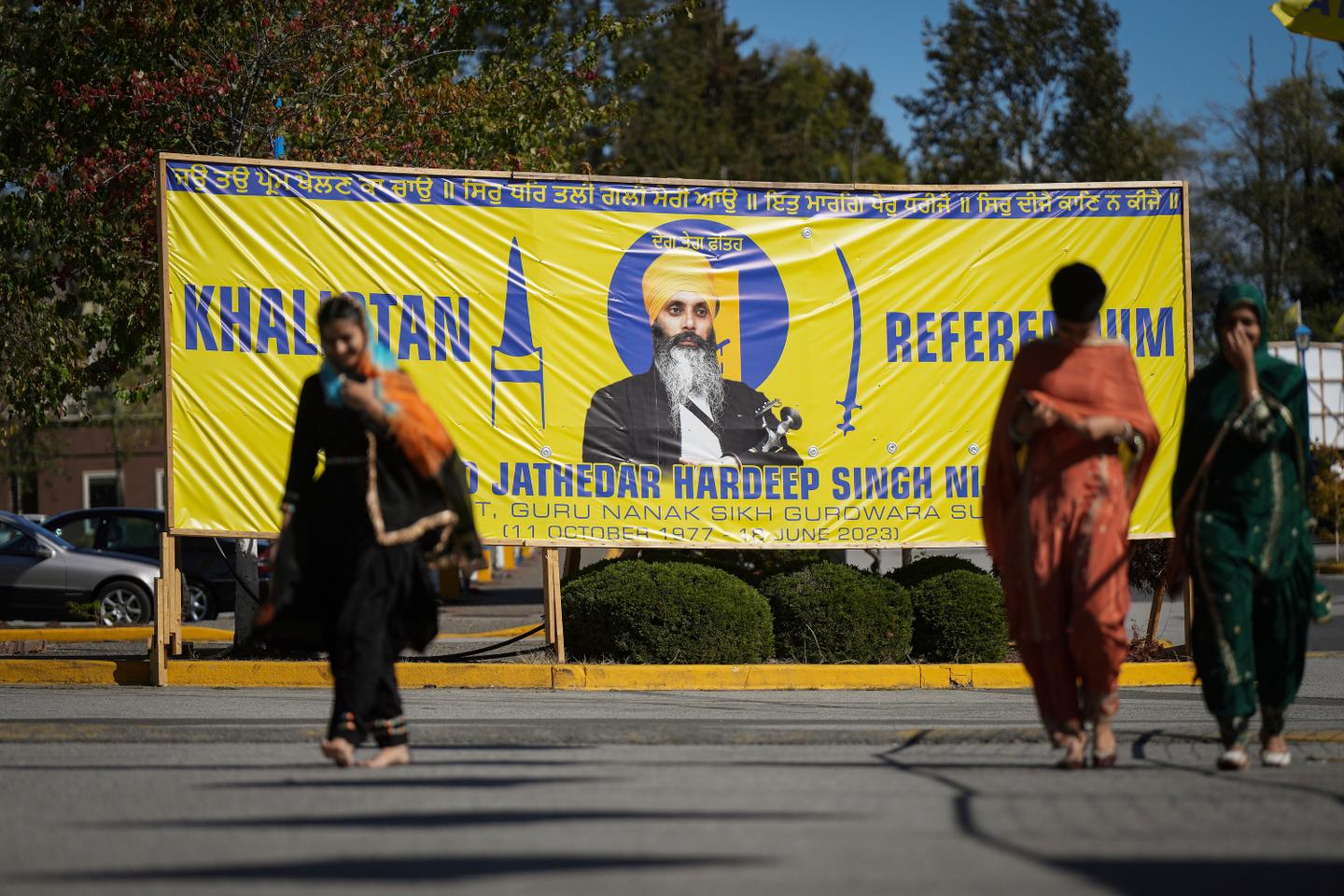Cascade of retaliation between India and Canada. The two countries each expelled their ambassador and five other senior diplomats on Monday, October 14, after New Delhi said its envoy had been cited among “interested persons” in an investigation into the assassination of a Sikh separatist leader.
India initially indicated it would withdraw its six diplomats from Canada, but Mélanie Joly, Canada’s foreign minister, later confirmed they had been expelled, not withdrawn. The minister emphasized that he made this decision taking into account “plenty, clear and concrete evidence to identify six individuals as persons of interest in the Nijjar case” and the lack of cooperation from India, which refused to waive the diplomatic immunity of its envoys.
The death of Canadian citizen Hardeep Singh Nijjar, who campaigned for the creation of an independent Sikh state in northern India called Khalistan, soured relations between the two countries, and Canadian Prime Minister Justin Trudeau declared that there “credible claims” linking Indian intelligence to this crime.
On the other hand, India “decided to expel” Ottawa’s acting high commissioner, Stewart Wheeler, his deputy and four first secretaries ordered them to leave the country by midnight on Sunday.
The expulsion of the diplomats – the senior envoys from both sides – constitutes a major escalation in the conflict.
“Monumental mistake”
Canadian Prime Minister Justin Trudeau said on Monday that India had “a monumental mistake” by deciding“attack the Canadians” after these cross-deportations. “I think India made a big mistake by choosing to use their diplomats and organized crime to attack Canadians (…) and to create acts of violence and killing. This is unacceptable”he said, referring to allegations made by Canadian federal police against Indian government agents.
“We do not trust the current Canadian government’s commitment to ensuring their safety”explained the Indian Ministry of External Affairs to justify the withdrawal of its personnel. He particularly described“absurd” allegations of India’s involvement in the killing, seeing it as a “strategy of smearing India for political purposes”.
At the same time, the Royal Canadian Mounted Police (RCMP) announced on Monday that they had “proof” as regards “Involvement of Agents of the Government of India in Serious Criminal Activities in Canada”. RCMP Commissioner Mike Duheme spoke in particular about cases of“trimming, harassment, extortion and coercion” on Canadian territory that binds government agents to “murder and acts of violence”to “covert activities such as intelligence gathering” and off “interference in democratic processes”. The federal police emphasize that they tried to approach the Indian authorities with this evidence, without success.
Overbid
Since Justin Trudeau’s accusations, New Delhi and Ottawa have engaged in one-upmanship in diplomatic retaliation.
The world application
The morning of the world
Every morning you can find our selection of 20 articles not to be missed
Download the app
Last year, India temporarily restricted visas for Canadians and forced Canada to repatriate some of its diplomats. “India now reserves the right to take further action in response to these latest efforts by the Canadian government to fabricate allegations against Indian diplomats”its foreign ministry warned on Monday.
Nijjar, who immigrated to Canada in 1997 and has been a citizen since 2015, advocated an independent Sikh state in India, Khalistan. Wanted by Indian authorities for alleged acts “terrorism” and conspiracy to commit murder — charges he denied — Nijjar was shot and killed on June 18, 2023, outside the Sikh temple he led in suburban Vancouver. Four Indians were arrested after the murder.
In November 2023, the US Department of Justice, for its part, charged an Indian national residing in the Czech Republic with planning a similar assassination attempt in the US. Prosecutors said an Indian official was also involved in the case.
About 770,000 Sikhs live in Canada, making up 2% of the population, with an active minority demanding the creation of an independent state of Khalistan.
